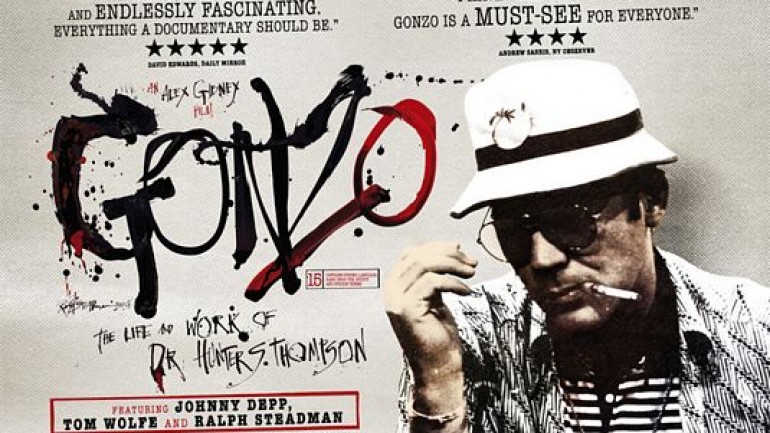Bad boy journalist Dr. Hunter S. Thompson – equally famous for his railings against the Nixon administration in the pages of Rolling Stone and his well-chronicled personal adventures with drugs, alcohol and the Hell’s Angels -was an iconic counter-cultural hero of the 1960s and ’70s.
After Enron: The Smartest Guys in the Room and Taxi to the Dark Side, Hunter S. Thompson seems like an odd subject for Alex Gibney to take on. Unlike the Enron executives or Baghram guards, the gonzo journalist didn’t bilk old ladies out of their savings or torture Iraqi citizens. Nonetheless, the director’s follow-up to the Oscar-winning Taxi shares an interest in the uses and abuses of power.
Gibney recounts the major biographical details, from birth to suicide, but his film really comes alive when he gets to the late-1960s. Though Thompson remains best known for Fear and Loathing in Las Vegas, Gonzo concentrates on his coverage of the 1968 and ’72 presidential elections. The author was particularly excited about George McGovern, and chose advocacy over non-partisan reporting. McGovern, Pat Buchanan, Ralph Steadman, Rolling Stone editor Jann Wenner, and others testify to Thompson’s enthusiasm for the South Dakota senator–and hatred for Nixon.
Gibney argues that the fire started to die after Hunter witnessed the brutal treatment of protesters at Chicago’s Democratic Convention. Disillusionment led to an erosion of his talent and an escalation of his self-destructive tendencies. As Johnny Depp, who played him in Fear and Loathing, reads passages from his work, the doctor’s friends and family provide a glimpse of the insecure man behind the brash image. Gibney’s evenhanded depiction may disappoint true believers hoping for a glorified puff piece, but Thompson’s ability to speak truth to power with wit and passion comes through loud and clear.





For such a good post, Im pretty dissapointed at the quality/quantity of comments.